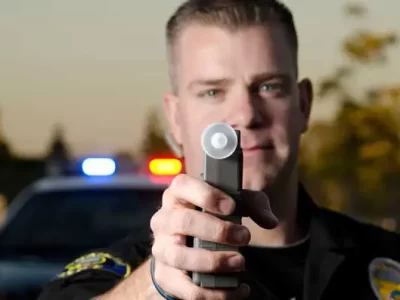Cherokee County State Court convicted a defendant for driving under the influence (DUI) per se arising from an accident in which he collided with an apartment complex’s vehicle gate and left the scene. The defendant’s girlfriend and resident of the apartment complex then spoke to the responding officer, mentioning that the defendant had imbibed at a restaurant before arriving. She permitted the officer to speak with the defendant, her boyfriend, on her phone during which he admitted that he drove the truck, prompting the officer to ask the defendant to speak with him outside.
The defendant reluctantly obeyed and appeared to be hurt, but he refused treatment. The officer believed that he seemed to be under the influence, and the defendant admitted to consuming several drinks. The officer arrested him and read the complied consent notice. The defendant agreed to a blood test that showed a 0.202 blood-alcohol concentration.
The defendant filed motions to suppress statements made at the scene and his blood-alcohol blood test because he claimed that the officer did not Mirandize him and that he did not freely and voluntarily agree to the blood test. The trial court denied the motions, compelling the defendant to appeal.
The Georgia Court of Appeals reviewed the case and noted that the defendant was not in custody while he initially spoke to the officer; thus, he was not entitled to Miranda warnings. The evidence also suggested that the defendant freely and voluntarily consented to the blood test, even agreeing to the test again when he was taken to the fire station for its administration.
The Appeals Court sided with the trial court and affirmed the denial of the defendant’s motions.



 Protective Orders Limiting Parental Visitation
Protective Orders Limiting Parental Visitation